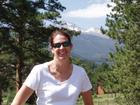This session was composed of four speakers. The first was Marydee Ojala who edits ONLINE: The Leading Magazine for Information Professionals and blogs at http://onlineinsider.net/.
The questions she addressed were:
Are there philosophical differences between information professionals and end-users?
How does this affect searchability and findability?
IPs enjoy the search and sharing info between themselves BUT this leads us to forget to stop, overlook things, and, it begins to take longer. On the other hand, users want to find things, they don’t care about sources. The web makes searching pervasive but also unstable and had produced a culture of ‘gaming the system’ among publishers and providers.
In the future, the worst case scenario would be a highly controlled information environment where price doesn’t guarantee quality: shopping trumps research. In the best case, interfaces become intuitive, there are no licencing wars, high quality information is easily available.
The next presenter was Jay Datema, Technology Editor for Library Journal.
He talked about how “search[ing] has been commoditized” where the cost is privacy and people are making money from it, however, search syndication is a benefit to those who know what they’re looking for.
Sites like del.icio.us make it possible to find out what people are reading quickly and easily (presumably that makes it better than searching). See my del.icio.us page at http://del.icio.us/sarahwsutton
Authentication (‘s ability to preserve the privacy of the searcher) is the future of searching. There is the growing expectation of finding the past in the search (e.g. backfiles).
He mentioned Zotero as a means of creating a personal digital library. Note that zotero is one of my del.icio.us bookmarks in my ToRead tag category.
Here’s an interesting idea: Grokker as a federated search mechanism (some of the SUNY libraries are using it for that purpose).
Next, Mike Buschman, Technology Evangelist, Live Search Selection (Microsoft) spoke on The Future of Information Retrieval: When all books are online which seemed to me to be a bit preachy and sale-pitch-ish.
http://get.live.com/
MS Live Search Academic. About 5% of the worlds information is online, he talked primarily about the Live Search and the Book Search products.
In the future direction section of his presentation he mentions “unlocking non-textual information”. He mentioned music instruction books as an example but I immediately thought of the visual information seeking session (Eye to I), that I attended yesterday.
Questions to consider:
What is the atomic unit of the book?
What is a work?
What is the future of the physical library?
How is the movement to digital information going to affect what library professionals do?
Finally, R. David Lankes http://www.DavidLankes.org (LIS Faculty) presented on The future of information retrieval: Finding conversations
I realize that these notes have been getting progressively more disjointed, probably because it’s early, it’s the third day of the conference, he’s the last of four speakers.
The failure of Reference EXTRACT: mining data from reference transactions (which had been cleaned of any personally identifying info) and then calculated frequency of appearance of databases.
Miwa’s Question Paradox: people ask the same questions at the beginning and end of a search with completely different intentions
McClure’s Citation Strategy: in order to get cited, say it first, say it last, or say it stupid
Note: he made both of these up based on things people he knows have done and/or said.
http://iis.syr.edu/Projects/PNOpen What he means by ‘conversation’ has to do with this project to decompose reference transactions using complexity theory and network theory as frameworks…the conversation is the network created by the paths between utterances in these decomposed transactions.
Find the paper they wrote called, “Participatory Networks: The Library as Conversation”.
The web (etc.) makes a great deal of “conversational” data available.
Book as “conversation” (his definition) because the author had to organize the info it contains into chapters. Which is an interesting idea to compare to the NASIG keynote speaker about conversations in books as defined by marginal notes…a conversation in the more traditional sense: people communicating ideas in writing over time.

Subscribe to:
Post Comments (Atom)
Live chat
About Me

- SWS
- I am... a wife a daughter a sister/sister-in-law an aunt a reader a librarian a doctor a quilter a niece a grandmother ;-) a cat owner 6 feet 1 inches tall a yoga enthusiast a cook
Blog Archive
-
▼
2007
(63)
-
▼
June
(26)
- ALA 2007 – Eye to I: Visual Literacy Meets Informa...
- ALA 2007 - The Future of Information Retrieval
- ALA 2007 - Utilizing learning theory in online env...
- ALA 2007 - LRRT Research Forum: Information Seekin...
- ALA 2007 - Library Research Round Table Research F...
- ALA 2007 - Library Research Round Table Research F...
- Informing the future of MARC: An empirical approach
- ‘Research Methods in Information’ chapters 9 and 10
- ‘Research Methods in Information’ chapters 7 & 8
- "Research Methods in Information" chapters 5 & 6
- Need a laugh?
- 'Research Methods in Information' chapters 3 & 4
- NASIG 2007: final thoughts
- NASIG 2007: Education trifecta: win attention, pla...
- NASIG 2007: How does digitization affect scholarship?
- NASIG 2007: Hurry up please. It’s time – State of ...
- ALA 2007 schedule
- "Research Methods in Information", chapter 2
- "Research Methods in Information" chapter 1
- "Research Methods in Information"
- Too good not to share
- NASIG 2007: Betting a strong hand in the game of e...
- NASIG 2007: Alternatives to licensing of e-resources
- NASIG 2007: Electronic resources workflow management
- NASIG 2007: "What's the different about the social...
- NASIG 2007 conference: opening session
-
▼
June
(26)
No comments:
Post a Comment